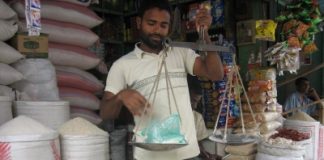Political Party internal
democracy should be strengthened
Dr. Harini Amarasuriya
M.P. Jathika Jana balawegaya (JJB)
Sri Lanka is going through an extraordinary time at this moment, and we need to understand that moment correctly. The Aragalaya that we are seeing now has been calling for the transformation of our country, of our quality of social relations in fundamental ways. And it’s important that we pay attention to that. It’s important that we understand what the demands of the ‘Aragalaya’ symbolises in a larger political and social context. One of the biggest areas we think of, as the National People’s Power (NPP), that we need to deal with in this country, is the social contract between the rulers and the citizens and we think that this is a problem that has been unresolved in our country ever since independence.
In many ways, we’ve been struggling to define this relationship, to define this contract in a way that is equitable, democratic, and just, and many of the problems that we’ve been facing since independence, the Northeast conflict, the Southern insurrections and all Of these moments, the sort of significant moments of political upheaval in our country, have been the underlying issue has been that social contract. And we have still not really come together to form a social contract that works fairly for everyone. So, in that light, we think a new constitution is absolutely essential. We have come to the limits of this current constitution. We have severe problems with the existing constitution.
We critique the constitution, especially the executive presidential system, we think this can no longer be tinkered with and a new constitution is required. And we think one of the primary fundamental questions that the new constitution should address is the social contract between the rulers and citizens and the kind of relationship that should be – how do we ensure that there are no second-class citizens and that citizens feel included and part of the system, whatever their identity, whether it is in individual identity in terms of gender, sexual orientation or being part of a specific cultural, ethnic community. Whatever the identity is, there can no longer be second-class citizens in our country. So ensuring equality, equity, and social justice for all, irrespective of difference should be a primary fundamental principle in the new constitution. We also think that in redefining the social contract between the citizens and the rulers, one of the things that we need to think about is how to strengthen democracy, how to strengthen democratic structures in our society, and how to enable citizens to participate more actively in their own political systems and political
decisions.
So, we have several ideas that we are thinking about and we are discussing. None of these are final, but these are up for discussion. One or two examples that I can give is that we know that during elections, all political parties come up with manifestos that are simply forgotten after they get elected. Even right now, we see that problem where there was overwhelming support for a particular manifesto, and for a particular type of leadership that never materialized. It also does not consider the fact that citizens also change their minds and change their ideas about what is right and required.
However, there’s no opportunity that is given in our system to accommodate this change. We see that happening right now. So, there are several things that we propose to address – one is that we think a party that gets elected to power by presenting a particular manifesto has to be justiciable somewhere. So that there is some constitutional provision that is provided for a citizen who voted for a particular manifesto to hold them accountable. A party that comes into power by promoting a particular manifesto is bound to implement it and a citizen should have the right to go to court if necessary if that manifesto is being undermined or not implemented properly.
The other proposal we have is to have a provision with the right to recall a representative so that the citizens who elected a particular member do not have to wait for the end of the term of office in order to express their sentiments about a particular representative. If during that period the representative violates certain fundamental agreements or is accused of corruption, those who sent him to that position should have the ability to recall and call for new elections. We also think that matters like crossovers should be prohibited or crossovers should result in you losing your seat and having to be re-elected.
You cannot simply just cross parties and remain in your seat without your constituents being given a chance to accept or reject the position you have taken. So as the NPP, things like this in which citizen’s participation in this system is strengthened, are implemented at people’s councils at the local level where we are setting those, by getting the community to appoint leaders from within that community, representative of that community, who will then form an NPP council for that particular local area. So we have asked that the people’s councils include youth representation and women’s representation that is representative of that community, of the diversity within that community. Within our party structure, the councils will have the power to influence what happens within the party. Once we set this up properly, which we are in the process of doing, we think that they should be able to, for instance, propose nominations for elections in the future. They can suggest who should represent them in elections. Those ideas should come from the council’s input into policy input and into the manifestos that the party develops. So, we have a council at the very local level, at the polling division level another layer, and a district level representation.
Through this system, we’ll be able to influence the party at the national level so that there is a conversation and a dialogue that is enabled across the party. So the decisions are not just taken at the top and sent down to the bottom, but there is communication that goes both ways. So we think that democratising party structures, as well as enabling greater citizen participation in decision-making in matters of policy and politics is the way that we can democratize society. We are aware that a constitution can only do so much, and along with the constitution there is a need for political education, consciousness, awareness raising, and also opportunities for citizens to organize and engage if we really want to democratize our society. These should be priorities for reform in the months as we go forward.
Voice of Citizens
This post is also available in: தமிழ் සිංහල






